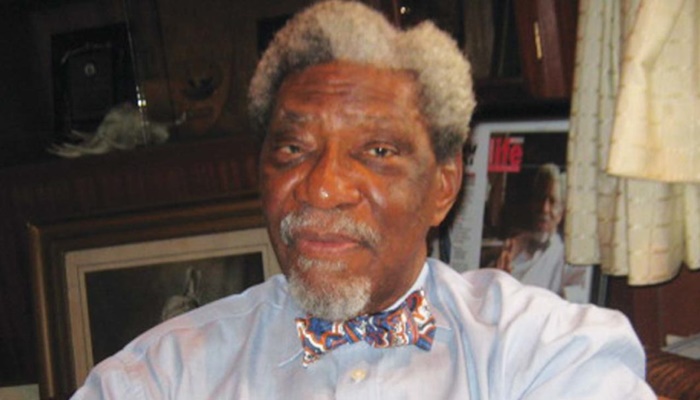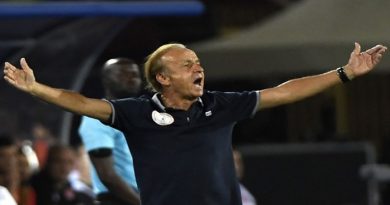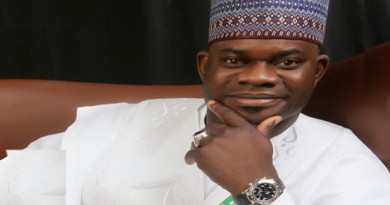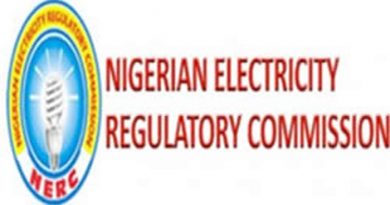We need to return to 1963 Constitution to get Nigeria right—Femi Okunnu
Federal Commissioner for Works and Housing in the first republic and former pro-chancellor and chairman governing council of the University of Agriculture, Makurdi , Alhaji Lateef Olufemi Okunnu, SAN, in this interview, x-rays the Nigerian state 58 years after independence and says only a return to the 1963 constitution will revive Nigeria.
Excerpts: By Chioma Gabriel, Editor Special Features
HOW do you see the state of affairs in Nigeria 58 years after independence?
The state of affairs today, coming from the year of independence in 1960 is very, very grim. I cannot find a better word for it. Very grim because as a young man in 1960, and as a young political activist in 1960, after my political activities as a general secretary and president of the Nigerian Union of Great Britain and Ireland. The hope which we had about Nigeria was a country free and strong; free, yes we were free; strong, we were not strong, economically, morally, mention it.
Our picture of Nigeria, our hope for Nigeria that time was a country very strong economically, the leader of Africa in world affairs and a leading economic power in the world. Nigeria is neither today. It is not in either of the two positions, any position of leadership today. It is very far from it.
So what went wrong?
What went wrong? Leadership. We don’t have leadership with patriotism. We don’t have patriots at the helm of our affairs. We don’t have those who are Nigerian patriots. We lack that sort of leadership. There are good ones among them but very few. We don’t have people who are patriotic enough, who have the love of the country and who have a mission to create a strong, economically strong country to lead this nation. We need a country or leadership which will have the feel of the people of this country, a leader who will understand the people of this country, who will understand what the people want for their daily life and to provide what the people want. We don’t have them. We have people interested in how much they can steal from the public pockets or exchequer. They are more interested in how much money they can rake out, legitimately and illegitimately. That’s our biggest problem.
What went wrong? Well, where do we start?
True enough, we have a coup, a military coup but that was not really the beginning of our trouble or the main cause of the present travail Nigeria is experiencing today.
Not the military?
Not the military. The military has left governance in the past, almost 20 years, 19 years now. What has changed between 1999 and 2018? Nothing, if anything, it is worse. So, it is not the military. It is not the coups we had, bad as they were.
And it wasn’t the civil war?
It wasn’t the civil war. That’s not the cause of our problem. It is unfortunate that the civil war erupted in the country because of greed in certain quarters and intolerance in some other quarters, all merged together, all colliding. It wasn’t the civil war but the unfortunate thing is that we have politicians today who are political prostitutes. They move from one party to another, they move to one party and back to their former party. That’s what we see in the political scene, whether APC or PDP. Today, you’re APC and you move to PDP; tomorrow you are back to APC or the other way round. There’s no ideology which will provide or let us know what you want to do for the people of the country if you get into power. What are your goals, your ideological goals? No manifestos to say when I’m in power, this is what I will do for education, this is what I will do for health, in housing, in agriculture, in works, nothing! They provide us with nothing. In those days before independence, there were three major political parties. There was the National Council of Nigeria and the Cameroons, NCNC, the oldest of the three, when Cameroons, the trust territory was being governed as part of Nigeria on behalf of the United Nations with the Nigerian National Democratic Party founded by Herbert Macaulay in 1922. There was the Action Group. Free education and free health The NCNC was led by Dr. Nnamdi Azikiwe and the Action Group was led by Chief Obafemi Awolowo. There was the NPC, Northern People’s Congress led by the Sardauna of Sokoto. Both the Action Group and NCNC had manifestos promising to provide free education for the people and they kept their promise. The Action Group did it, provided free education and free health. Awolowo started it as Premier of Western Region and Azikiwe followed suit with similar plans and manifesto and they achieved their purpose before the military coup. Sardauna of Sokoto had his own plans for the northern people. They wanted the north to be together, Muslim and Christian. NPC welded them together although, again, like you find even in western and eastern region, minority and ethnic groups wanted some measure of self government.
But back to the point, the major parties had manifestos of what they will achieve or wanted to achieve in government. Today, we don’t have manifesto’s. No party has any manifesto today, none. Well some of them do make promises but at the end of the day… What the public wants is written manifesto, a pamphlet saying that when I’m in government, if I form a government at the state level, this is what the state government will do for the next four years in areas like health, education; pre university education, primary school, secondary school, agriculture, housing. No party to my knowledge since 1999 has published a manifesto. None of them have said ‘if I form a federal government, this is what I will do for the country in terms of transportation, whether by rail or by road or by sea or water and other fields. So, that is one thing which we lack. Everybody says what comes to his mind and we don’t even know their minds, so their promises are unfulfilled. We can’t know what the performance of a particular governor or a particular party in a state or in the federal government after four years is. Political parties measurement So we don’t have any manifesto to show us or persuade us to vote for them, that when they are in government, this will be the performance so we can gauge at the end of four years whether they measured up to their promises.
Is this not a function of the constitution, the military constitution that we’re operating in Nigeria?
No, not exactly. It is not the function of the constitution. Whatever the constitution you have, any party which promises to govern and govern well should provide three meals per day for the people, provide employment for the people, provide education, better education than the available one, provide good health, build hospitals and look after the people’s welfare. These are things you measure political parties with, not the constitution. That has little to do with the constitution. When I say it has little to do with the constitution, the only relationship between the constitution and these functions is this: that the parties will tell us what they want to do within the powers vested in the state government for example or federal government in the constitution. But today, we have a huge confusion about who has what functions.
So, it has nothing to do with the military rule as such but let me say this, people talk of the constitution, constitutional changes, they want to change the constitution and the major parties promise structural change, isn’t it? They only occasionally mouth this vital issues. They haven’t told us what they want to change. They have not even committed themselves to any change. Neither the APC or the PDP or APGA in the eastern part of the country has come out clearly to say it is in favour of structural change, constitutional change. All of them have just been dancing around the need for change but no commitment so far.
Currently, many people are agitating for restructuring. How do we restructure?
Well, the issue of restructuring has been with us for quite some time and the whole issue boils down to what constitution is best suited for Nigeria. Nigeria has gone through several constitutions in the past 100 years. Clifford’s constitution of 1922 was limited only to the colony of Lagos and the protectorate of Southern Nigeria. The north was being ruled under indirect rule by the British until 1946 when we had Sir Arthur Richard as the Governor-General of Nigeria. Later, we had Lord Milverton and under Milverton’s constitution, for the first time, the people of the Northern protectorate and the people of the Southern protectorate and the third colony of the British, Lagos Colony were brought together under the same umbrella in a legislative council. That was the first time the whole of Nigeria came under one constitution but there was the Macpherson constitution in 1951 followed by Littleton constitution in 1954 which established the federal system of government for the country and the constituent parts of Nigeria at that time were Northern region, formally Northern protectorate; the Western region, the Eastern region, both carved out of the Southern protectorate, the fourth unit forming the confederation was Southern Cameroons and the fifth unit was the Federal Territory of Lagos. Now, the structure remained the same in 1960 when Nigeria gained independence from Britain and when Nigeria ceased to be a dominion with the Queen as the head and became a republic in 1963, the constitution was changed; not in depth but just changed from dominion to republic, otherwise more or less word for word.
Now, before independence, as I said in relation to Northern region earlier on, the minority ethnic groups within each region agitated for self government. They wanted their own regions. There was a civil war, many people don’t remember this, in the Northern region waged by the Tivs and the Idomas. They went to war and the Nigerian army crushed that rebellion. It was an armed conflict. It was just before independence and after independence, before 1966. They wanted their own Middle Belt region, that is middle belt movement. Not only Tivs and Idomas but also the Yorubas in what we now call Kwara state agitated. There was also a huge agitation in the Eastern region by the Calabar, Ogoja and Rivers people. The Ijaws, the Ibibios, the Efiks wanted their own separate region. These are now the areas called the South-South. It has no constitutional significance. In the west, the non-Yoruba parts of the region also wanted their own independence. They got theirs in 1963, that’s the mid-west now, the mid-western region. Constitutional conference So between 1958 and 1960, the British colonial governments told our leaders clearly, “if you want structural changes, that is, new regions, it will delay your independence” because the new regions must be able to stand on their own and that will take time. So, the leaders and not only the leading politicians but the minority leaders, the COR states, the middle belt movements, even the non-Yoruba part of Western region opted to leave things as they were, to leave the structure as it was until after independence. It was on that call that the changes made by Gowon became very relevant. So, up to independence, we had three regions. In 1963, we had four regions, mid-west, and Gowon after the second coup set up the constitution review committee, ad hoc constitutional conference to debate at a time when the civil war was on the uprising. People were talking that there has been mass killings of Nigerians of Igbo origin, Igbo speaking Nigerians in parts of the Northern Nigeria. There had been disturbances here and there. The country was on the brink of a breakup and he summoned this ad hoc constitutional conference to debate the future of the country. I was a member of that conference. I took part fully in that conference in 1966 after the July 1966 coup by Gowon which enthroned Gowon as the head of state.
Now, the issue of states came up very strongly during the conference. The Eastern region led by Colonel Ojukwu as the military governor wanted to pull out of the federation and it was a very difficult time indeed for Nigeria.
Now what came out after that?
In 1967 about the time Ojukwu declared the breakup of the country, the federation and the establishment of Biafra as a sovereign country was some sort of surgical operation to satisfy the yearnings of minority people in the Northern region for their own self government within the federal Nigeria. So, the creation of twelve states structure was the answer to that yearning. The COR states movement, the Calabar, Ogoja, Rivers movement, the non-Igbo speaking part of Eastern region had not just one state, they had three states, Rivers state; largely Ijaws, Kalabaris and so on and also South-Eastern states, now Cross-River and Akwa Ibom, that is, the Efiks and Ibibios. Remember Lagos state had been a colony of Britain since 1861 before Nigeria came into being in 1960, the Lagos colony as it was in 1861 became a state. It was never part of Western Nigeria when it was created in 1946, except for a part of it: Epe, Badagry, Ikeja, being moved to Western Region for some period. The biggest agitation had been that the North was too big, big in size, big in population and it was double the size of the rest of the country and the population was greater than the rest of the country and if they wanted federalism, the north had to be broken up into states and that led to the north being broken into six states. Six states were made out of the Northern region and six from the west and the east and of course Lagos. To me, that was the ideal federal system in terms of state creation. Unfortunately, those military leaders who wanted to create favour for themselves wanted the favour of the people who wanted more states. They broke up the country and were even in the process of creating more states as shown in 2014 constitutional conference of Jonathan. So, to me, the ideal constitution was the 1963 constitution with 12 states structure which was the constitution which governed Nigeria from 1966. Wasn’t it a military constitution? Gowon followed the 1963 constitution throughout. The only significant change was the creation of states out of the Northern region, East Central states, Rivers state, South-East of out Eastern region. The mid-west was left almost intact. The rest of the west was left intact as Western states and Lagos state, also making up the 12 states. To me, that was the best Nigeria ever had and can ever have in terms of state creation. But let me emphasise this; that the constitution which prevailed throughout Gowon’s military regime and for part of Muritala-Obasanjo’s military regime was the 1963 constitution. It was the 1963 constitution which still prevailed largely until the 1979 constitution. To me, that was the ideal constitution.
Now the problem was created in 1979 constitution. It killed federalism in Nigeria, fiscal federalism. That is the problem Nigeria has today. That is the 1979 constitution and its successor, the 1999 constitution. You see, a federation is a group of willing state or states which agree to cede part of sovereign powers to a federal government on top with defined powers and the remaining powers, either concurrent, shared with the federal government or other powers not stated in the constitution to be welded by the state government. That is one element of federalism. Local governments have nothing to do with the federal system of government. They’re a hundred percent part and parcel of state government. Federal government should not interfere with local government. Unfortunately, the 1979 constitution created an avenue to bring in and cause confusion about the meaning of federalism. The major harm created by the 1979 constitution was on finance, the state of origin, revenue allocation. The revenue allocation established before independence, that is in the 1960 constitution took account of functions exclusive to the federal government and they all agreed before 1960 that this formula was best suited to cater for the needs of federal government and what was that formula? You take what became dominant, an economic factor, oil. Element of federalism: Any profit from oil was shared under this formula. Fifty percent of the revenue will go to the region of origin, twenty percent to cater for the needs of the federal government and the needs of the federal government were largely foreign affairs, defence: that is the armed forces, the police, immigration, citizenship. It is all listed there. Just twenty percent of the revenue from oil and the remaining thirty percent should be in the distributive poll, to be shared by the regions. The emphasis I am putting here is that the federal government is just twenty percent. In 1979, it was part of the recommendation which the constitution drafting committee made and I was a member of that constitution drafting committee. It was part of our recommendation to retain that formula in the 1960 constitution. In the 1979 constitution, General Obasanjo, who was the head of state at the time, changed it and put zero instead of the fifty percent for state of origin. In fact, the whole hundred percent went to the federal and the federal legislature, that the national assembly had to know what pittance to give to state of origin. That was the death knell of federalism.
The 1999 constitution just made little adjustments; state of origin, thirteen percent, federal government being 52 or 54 percent with more or less the same functions in 1960 constitution. The functions have not increased. The functions on the exclusive legislative list more or less are the same as in 1960 but the federal government has garnered the bulk of the revenue on oil.
The federal government has other sources of revenue like company tax, like customs, so what difference has it made?
It has made the states impoverished. They have no money to cater for education, primary and secondary. They have no money for health. They have no money for housing. The federal government has garnered the whole money and that is why you have governors queuing up at Abuja. That is why we need restructuring to go back to the 1963 constitution with this amendment. And let me add this. All the parties when they are in opposition, they say they want restructuring; when they’re in government, they don’t want restructuring. Pledge to carry out restructuring Jonathan was forced into restructuring which made him set up a constitutional conference in 2014 because of the trouble created by Boko Haram which will reduce the voting power of his opponent, Buhari and because Jonathan’s government believed that it could now move into South-West, waving restructuring for those who wanted restructuring as against the non-view of the majority political party dominant in South-West at that time. So, they want restructuring when they are not in power but when they get there, no restructuring. I will like to challenge all the political parties to make a pledge that the presidential candidates after they have gone through their primaries and what have you, should make a pledge to the Nigerian people, for the candidate of APC who is Buhari, to pledge that when he gets back to power, he will carry out restructuring in the line I suggested which is going back to the 1963 Constitution. I will want the candidate of PDP to publicly pledge that his party, if he wins the election, will carry out this same restructuring. I will want the candidate of any other political party contesting election next May to make a similar public pledge. That is the only way that Nigeria can find out those who are honest with themselves and with the public and those who are not honest with the Nigerian public as far as restructuring is concerned. They should make a pledge. You said what many people are saying No, that is not people are saying.
Restructuring means different things to different people. In the line I have outlined, go back to the 1963 constitution with twelve states structure. That is my own idea and that’s why I have opposed JIRAD conferences, constitutional conferences; we had one in 2005 called by Obasanjo. I led Lagos to the delegation there. I refused to go to Abuja in 2014 because I thought it was going to be a waste of time but having given the issue some deep thoughts in the past two or three years, I am now convinced that we need a JIRAD conference which will now decide the future of this country.
What of the national conference of 2014?
Nothing came out of it.
But there was a paper on it?
Nothing came out of it. Nothing came out of the paper. It was just an ordinary paper. No action. Nothing! Jonathan had the power to get the national assembly under him to do the restructuring but nothing happened. I will not even have accepted that one because Jonathan’s conference advocated in total, about 59 states for Nigeria when ninety percent of the existing states cannot pay salaries for their staff. So you believe going back to the 1963 constitution is the solution to the problem. That is my own belief with the section on finance to remain as it was. We enabled regional governments at that time and state governments to finance their governments and let me just add this rider. Financing their governments Throughout Gowon’s rule, the mid-west had fifty percent allocation, just as Rivers state received fifty percent from its oil profit. The governor of the South-East then also received fifty percent as was under the 1963 constitution. The fifty percent revenue state of origin continued until 1979.
But that will make the federal government weak and not unattractive if we go back to that system What does the federal government do with the huge money when it has no additional constitutional functions to discharge?
Most of the functions discharged by the federal government today are stolen from the states, health being an example. The federal government has no business to do with health. It is a function of the state. Primary and secondary education is not the business of the federal government. It is the business of the state, with the regions in those days.
So, federal government meanwhile has stolen some state powers or functions. So it has no business going about feeding school children?
It is not its business. Give the states the money. Let the states have the money. Leave the school children to the states. You don’t control the schools. You don’t own the schools. That is how they caused confusion about the functions of government. The federal government has intervened in areas which does not concern it. Housing for example is not their business. I was the federal commissioner for works and housing for almost eight years. It is not their business to provide housing for the people. Leave that for the states. The function of the federal government in housing is to make provision for an atmosphere for mortgage banks or mortgage institutions to thrive, not actual construction of housing. It is unconstitutional. They have too much money illegally acquired but let that money go back to the states as it used to be.
Credit: Vanguard Newspaper.




